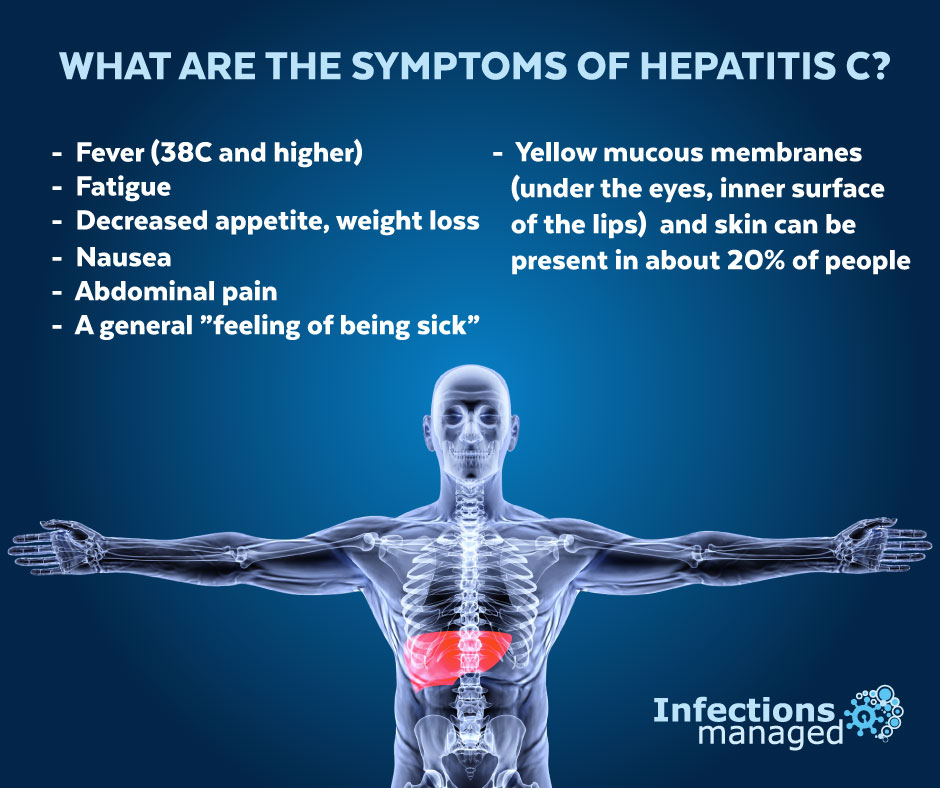Hepatitis C is a great challenge for global healthcare, but few people really know what this disease is all about. To help you out, we decided to write this simple guide with all the essential information on a single page!
What is hepatitis C?
Hepatitis C is an infectious disease caused by the hepatitis C virus (HCV). HCV invades the cells of the liver and makes copies of itself there, causing inflammation and damaging the tissues. Over the course of several decades, this infection develops into liver cirrhosis, during which the liver cells are replaced with scar tissue and can no longer function properly. Liver cirrhosis results in a severe impairment of the liver’s functions and drastically increases the risk of developing liver cancer (hepatocellular carcinoma).
How common is hepatitis C?
The World’s Health Organization estimates that about 71 million people were living with hepatitis C in 2015, and just 20% of them were tested and diagnosed with the disease. What’s even scarier is that just 7% of the people diagnosed with the disease had started hepatitis C treatment in 2015.
In other words, hepatitis C is a fairly common, underdiagnosed, and severely undertreated condition.
How do you get hepatitis C?
Hepatitis C is a bloodborne disease, meaning that the virus can survive only in the blood. In other words, the only way to transmit hepatitis C from one person to another is by injecting HCV-infected blood into the bloodstream of a healthy person. Here are the most common hepatitis C transmission pathways:
- Blood transfusion or organ transplantation
- Any kind of surgical interventions (including dental care), especially if performed in health-care settings with questionable infection control standards
- Injection or intranasal drugs
- Body piercing, tattoos, scarification
- Sexual intercourse with a HCV-infected person
According to the American Centers for Disease Control and Prevention, routine screening for hepatitis C isn’t recommended for the general population, as the risk of getting the disease isn’t actually that high for most people.
What are the most common symptoms of hepatitis C?
Most people don’t experience any symptoms during the first 6 months of being infected with hepatitis C. About 25-33% of people infected with HCV will report vague symptoms like fatigue, headache, nausea, changes in appetite, abdominal pain, and fever (38C and higher).
If the infection becomes chronic, more symptoms appear and develop progressively over the following years or decades including jaundice, muscle and joint pain, bloating, constant fatigue, itchy skin, anxiety, depression, increased bruising and bleeding. Symptoms vary greatly from one person to another, and there are no specific hepatitis C symptoms.
Is it possible to cure hepatitis C?
Modern treatment allows effectively curing the disease in about 97% of all cases. This is achieved thanks to a special type of drugs called direct-acting antivirals (DAA), which are medications that target specific enzymes of the hepatitis C virus, preventing it from making copies of itself in the patient’s liver.
Final thoughts
Although hepatitis C is a dangerous condition, it’s important to understand that it can be cured in the vast majority of cases. If you have any doubts about your hepatitis C status, make sure to schedule an appointment with a infectious disease specialist you trust and get tested as soon as possible. Remember, early detection saves lives!
Join our #Treat&Beat campaign!
We are here to help you! 💪 Call us to make an appointment: (954) 776-9992 or go online at infectionsmanaged.org

